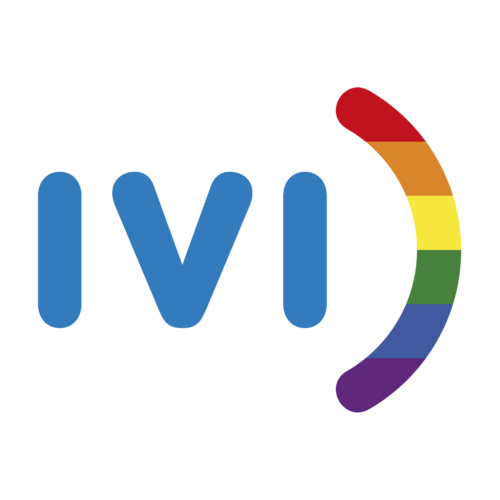Assessing your fertility as a female couple

At IVI, we offer a cost-saving fertility assessment package for lesbian couples which takes care of all of the required pre-treatment investigations for both you and your partner, including tests to calculate your ovarian reserve and 3D pelvic ultrasound scans.
Learn more
Treatment options for female couples
There are several types of fertility treatment for female same-sex couples who wish to have a baby. At IVI, we have access to high-quality donor sperm for donor insemination procedures sourced from an expertly screened donor-matching programme.
An IUI treatment with donor sperm involves inserting a sperm sample from a donor directly into the womb using a catheter. Before the procedure, the sperm sample is prepared in a laboratory to separate the healthiest sperm with the best motility from the immotile sperm less capable of fertilising an egg. IUI is a quick and painless procedure which is often considered a less invasive alternative to IVF, however the success rates with IUI are also lower than IVF.
An IVF treatment with donor sperm involves stimulating the ovaries to produce multiple eggs, which are then collected and fertilised in vitro using donor sperm. Once fertilised, the developing embryo(s) can be transferred back to the womb to facilitate a pregnancy.
Reciprocal IVF, otherwise known as Reciprocal IVF or Shared Motherhood involves one partner having her eggs collected after ovarian stimulation. The eggs are fertilised in vitro using donor sperm but unlike a normal IVF procedure, the embryos are then transferred to her partner’s womb to facilitate and carry the pregnancy. This treatment allows both partners to participate in the IVF process while both sharing a biological connection to their child.
Assessing your fertility as a male couple

For male couples, an important part of assessing your fertility involves a semen analysis.
A semen analysis examines a semen sample to assess sperm health. It is the primary test used to establish the sperm count and diagnose semen abnormalities which could impact your ability to conceive.

Treatment options for male couples
For same-sex male couples who wish to build a family biologically, a surrogate or gestational carrier will be required. IVI works with a number of agencies that can connect you to surrogate and facilitate your treatment.
If you are a gay couple who wish to have a child who is biologically linked to you, you will require donor eggs and a surrogate to carry the pregnancy to term. The eggs can belong to the surrogate, or belong to a known or unknown donor fertilised in vitro and transferred to a surrogate once reaching the embryo stage.
There are two types of surrogacy: traditional surrogacy and gestational surrogacy. In traditional surrogacy, the eggs used to conceive the child belong to the surrogate, making her the biological mother. In gestational surrogacy, eggs from a known or unknown donor are fertilised in vitro using your sperm, your partner’s sperm, or sperm from a donor and once an embryo has developed, it is transferred to a surrogate to facilitate pregnancy. In traditional surrogacy, an intrauterine insemination (IUI) or in vitro fertilisation (IVF) can be used to assist conception. Meanwhile, gestational surrogacy will always require IVF.
Gay couples exploring surrogacy should consider reviewing the latest guidance from the Human Fertilisation and Embryology Authority (HFEA), which covers the important financial and legal aspects of surrogacy.
Having a biological child can be a more challenging process for gay couples, however many fulfil their dreams of becoming parents through surrogacy each year. Wherever you are on your surrogacy journey, we’re here to support you. To get in touch, you can call us on 0800 52 00 161 or request an appointment online.
Treatment for transgender or transitioning individuals
Fertility for transgender individuals can be complex due to the way in which gender-affirming medical treatments can permanently affect fertility. If you wish to have children in the future that are biological linked to you, you should consider preserving your fertility by freezing eggs or sperm prior to your treatment.
To find out more, you can read our fertility preservation guide for transgender men and women or request an appointment to speak to one of our friendly specialists.


IVI is proud to have helped thousands of LBGTQ+ parents-to-be fulfil dreams of starting or adding to their families.
If you have any specific questions or concerns, we are here to hep. To request more information or to book an appointment, you can call us on 0800 52 00 161 or get in touch with us online.
